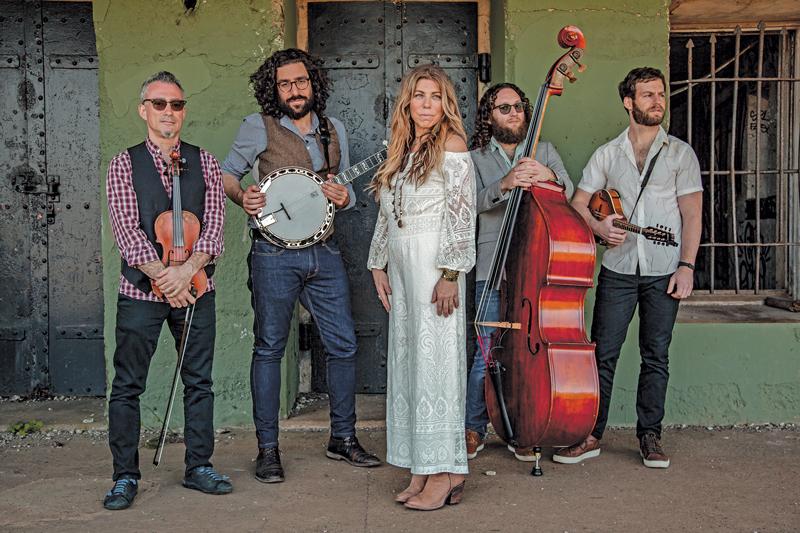In the early 1970s, Henry Sapoznik, a young New York musicologist and budding banjo player, was studying Appalachian music. He made frequent trips to North Carolina to sit at the feet of noted traditional fiddler, Tommy Jarrell.
Jarrell, observing that Sapoznik was one of a number of young Jewish musicians making the same pilgrimage, finally asked, “Don’t your people got none of your own music?”
The question changed Sapoznik’s life. While continuing to study and play the old- time music he loved, he also began researching his own heritage and went on to become a pioneering scholar and performer of klezmer music and played a major role in its revival.
Like Sapoznik, Doni Zasloff and Eric Lindberg are young New York Jewish musicians with a love of Appalachian music, specifically bluegrass, one of the main genres that music spawned. As the duo Nefesh Mountain, they have found their own way of answering Jarrell’s question: Rather than exploring both styles separately, as Sapoznik did, they meld bluegrass with the Jewish legacy they inherited. Their songs, which often set Hebrew lyrics from the prayers and Psalms to driving bluegrass rhythms and melodies, are equally approachable from the vantage point of either tradition.
In addition to the virtuosic, high-octane propulsion of traditional bluegrass and the cutting-edge harmonies of modern newgrass, their music also incorporates contemporary folk, pop, Celtic, and Eastern European influences. Their shows feature wide-ranging medleys that include “Calum Sgaire,” a Scottish fiddle tune; James Taylor’s “You Can Close Your Eyes;” gospel standards like “Down to the River to Pray;” their setting of “Modeh Ani,” the Jewish morning prayer of gratitude; and a syncopated, joyous, chorus of hallelujahs. Their most recent album, A Hanukkah Holiday Concert, which they livestreamed from the Levon Helm Studios last December, features the classic “Donna Donna,” Dylan’s “I Shall Be Released,” and three Woody Guthrie Hanukkah songs–klezmer-styled settings of Guthrie lyrics by the Klezmatics.
Lindberg sings with a soulful, smoky tenor, and picks guitar and banjo like nobody’s business, while Zasloff’s rich, expressive alto is the ideal vehicle for the wide range of dynamics and moods their music encompasses. The married couple’s close vocal harmonies are as tight as the genetically shaped sounds of the best family bands.
Last September, in time for the Jewish New Year, Nefesh (which means “soul” in Hebrew) released a video of their cover of an Allen Reynolds tune. The more than forty-year-old song is still eerily fitting for our times: “It’s been a too long time with no peace of mind/I’m ready for the times to get better.” Besides their superb musicianship, that song, like much of their repertoire, exemplifies Nefesh Mountain’s commitment to creating healing, authentic music out of both their legacy and their adopted tradition.
Nefesh Mountain will make their Ark debut on Tuesday, December 7, accompanied by Alan Grubner on fiddle, David Goldenberg on mandolin, and Sam Weber on bass. They will also give a lecture/performance at Eastern Michigan’s Student Center auditorium on Wednesday, December 8 (See Events listing).


